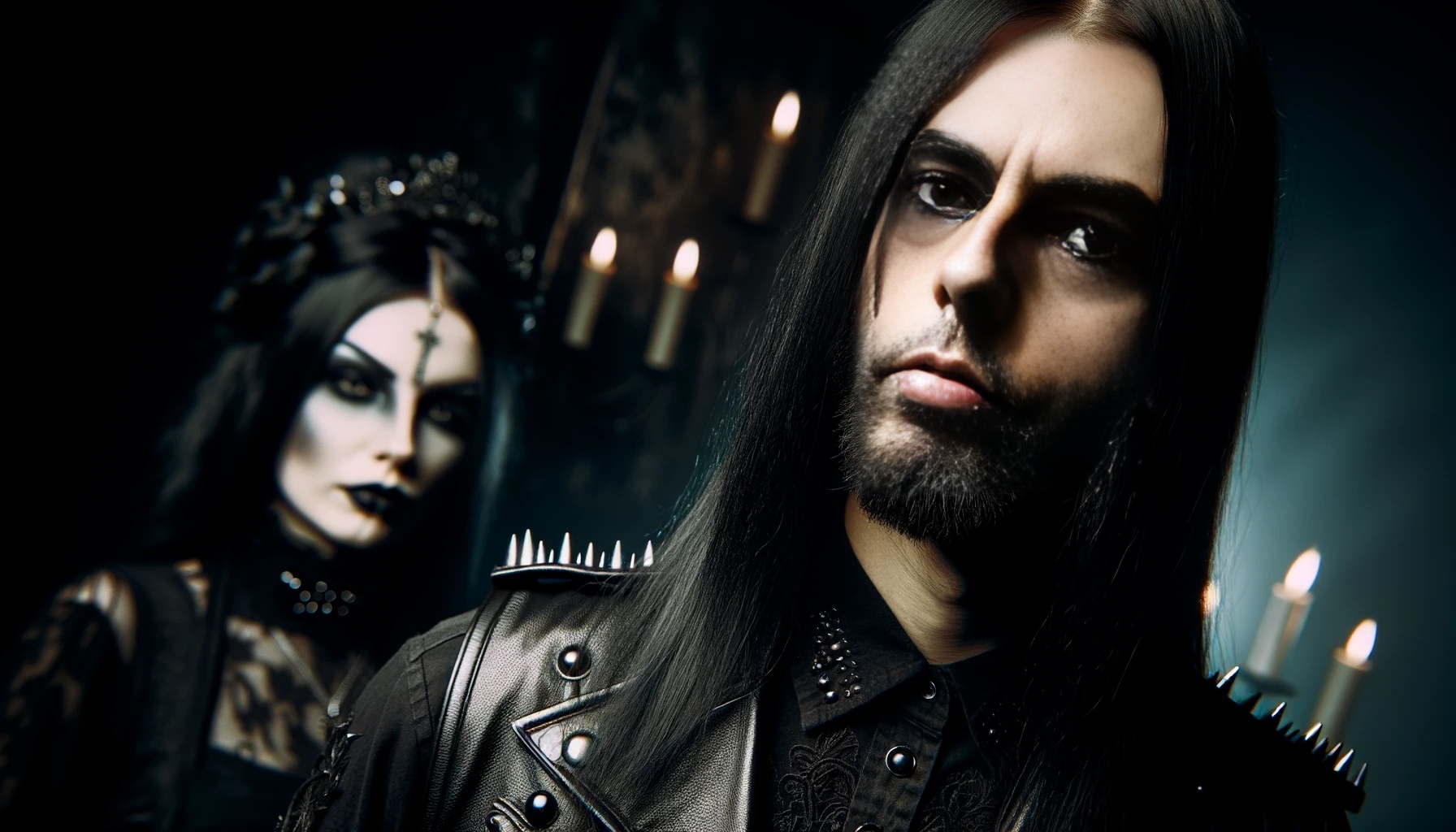Mainstream political views have been fed to us like bland cafeteria food: processed, predictable, and ultimately unsatisfying. But there’s a shadowy undercurrent, a rich vein of alternative thought that challenges this suffocating normalcy. Esotericism and occultism have simmered beneath the surface of society for centuries, offering those who seek them not just a different worldview but a radically different set of values, priorities, and political views. Esoteric and occult influence on politics is not a recent trend; it’s a subversive force that continues to quietly unsettle the cultural status quo.

Esoteric and Occult Influence on Politics
Let’s face it: today’s politics are stale. They’re mired in endless cycles of pandering, appeasement, and hollow virtue signaling. But when you bring occult and politics together, suddenly there’s a rush of fresh—if controversial—ideas. From occult-influenced anarchism to the quasi-spiritual authoritarianism of certain mystical ideologies, the esoteric political beliefs people hold are often a mirror to mainstream society’s most grotesque failings. If you’ve ever felt a gnawing sense of dissatisfaction with the political choices available, maybe it’s because the occult path has something to offer you.

The Hidden Legacy: Historical Role of Occult in Politics
Let’s start with a brief history lesson. The historical role of occult in politics is rich and complex. We’re talking about everything from the Hermetic influences on the Renaissance to the sinister flirtation with the occult by Nazi figures like Heinrich Himmler. Figures in history have always dabbled in the mystical, the unseen, the forbidden. Why? Because there’s power there—a kind of power that defies societal norms and scares the hell out of the establishment.
Take the Freemasons for instance, who, whether you love them or hate them, undeniably influenced revolutionary ideas. At a time when monarchies were deemed sacred, the Masonic lodges offered a different view—a political ideology grounded in egalitarianism, albeit shrouded in secrecy and ritual. Esoteric systems like Freemasonry taught that sovereignty doesn’t descend from heaven but rises from within the individual. This was a political revolution wrapped in mystical symbols and rituals, and it scared traditional authorities because it was an alternative spirituality and politics threatening to redefine society.
The Nazis, of course, took things in a different direction. They appropriated the occult and mystical ideologies that fit their agenda, cherry-picking symbols and myths to construct a pseudo-spiritual foundation for their own brand of authoritarianism. It’s a bitter reminder that occult and esoteric influences in politics are not inherently “good” or “bad”—they’re just powerful tools that can be wielded in many ways.

The Dark Mirror: How Occult Beliefs Influence Political Ideology
So, why are occult beliefs so dangerous to the powers that be? It’s because how occult beliefs influence political ideology challenges the very core of mainstream political and religious structures. If you’re steeped in the belief that every individual has access to divine insight, who needs a priest or a politician? The mystical experience often places power squarely in the hands of the individual, a radical act in a world that insists on hierarchies and intermediaries.
One of the most fascinating examples of this is Chaos Magick, a modern occult practice that’s as much about psychological empowerment as it is about mysticism. Chaos magicians reject the dogmas of traditional religions and instead create their own, often temporary, belief systems. Imagine applying that concept to politics. Instead of being stuck in a perpetual cycle of Democrat vs. Republican, Left vs. Right, you have a political belief system that’s fluid, adaptable, and unapologetically subjective. Chaos Magick and political esotericism go hand in hand, creating a way to approach governance and personal freedom that defies traditional molds.
In other words, esoteric political beliefs are fundamentally subversive. They reject the idea that there’s one true path, one correct political system. And it’s precisely this occultism and cultural norms clash that gets people so riled up. If you’re someone who believes that your soul isn’t just a passive observer but an active participant in shaping reality, then you’re going to take issue with being told to conform, to obey, to submit. You’re not interested in fitting into their tidy little political boxes.

Mystical Political Ideologies: Alternative Paths to Power
If you dig deep enough, you’ll find entire mystical political ideologies that offer frameworks of governance radically different from what’s in the mainstream. Take, for example, the anarchistic leanings of certain modern pagan communities, where the emphasis on individual spiritual sovereignty aligns with a disdain for centralized authority. Magic and politics collide in these circles, where personal ritual and community action blur the lines between spiritual practice and political rebellion.
There are also the so-called “eco-mystics,” whose beliefs blend deep ecology with animistic and occult principles, turning environmental activism into a spiritual crusade. This form of alternative spirituality and politics redefines activism itself—not as a social duty but as a sacred responsibility. When you view the Earth as a living, breathing entity, pollution isn’t just a technical issue; it’s a moral offense. And unlike the polished sound bites of today’s politicians, this form of activism carries real conviction, grounded in a worldview that defies the lifeless pragmatism of conventional politics.
And don’t forget the dark mystics—the kinds of people who see power as an end in itself and are willing to go to taboo places to seize it. These individuals aren’t trying to save the world; they’re trying to understand it on a level that conventional science and religion refuse to acknowledge. Some align with authoritarian ideologies because they view order as a reflection of cosmic principles. For them, esoteric systems and political views go beyond left or right; they seek to impose a kind of metaphysical order on a chaotic world, uniting the spiritual and political realms in ways that make traditional governance look childish in comparison.

Occultism and Cultural Norms: Breaking Free from the Chains of Convention
Perhaps the most unsettling aspect of occult influence on politics is how it undermines cultural norms. Occultism and cultural norms don’t mix. Where the mainstream insists on rigid structures, occultism embraces fluidity, mystery, and personal agency. This poses a direct threat to traditional power structures because it encourages people to think for themselves and seek their own truths.
Consider the concept of the egregore—a collective entity created by a group’s shared thoughts and emotions. In occult circles, egregores are believed to have power and influence over reality. Now imagine if we applied this to political ideologies. What if our governments, corporations, and religions were just egregores, fed and maintained by our collective faith in them? This perspective leads to a profound rethinking of authority. If you can withdraw your energy from an egregore, you effectively strip it of power. Suddenly, the idea of “dropping out” or “detaching from society” becomes a legitimate form of political resistance.
It’s not surprising that those who embrace occult and esoteric systems often find themselves at odds with mainstream society. The occult teaches personal empowerment, while mainstream culture preaches compliance. This friction is more than just philosophical; it’s political. And it’s precisely why the occult will never be fully accepted. The occultist poses a threat simply by existing as a reminder that other paths are possible, that the “normal” way of life is only one option among many.

The Rebirth of Political Esotericism
In recent years, we’ve seen a resurgence of political esotericism, from ritualized protests to the so-called “meme magic” that some believe influenced recent elections. This isn’t about casting spells to make a candidate win; it’s about using symbols, archetypes, and collective energy to shift cultural narratives. Whether it’s the alt-right’s flirtation with Chaos Magick or the left’s invocation of “binding spells,” magic and politics are intertwined in a way that feels disturbingly primal.
Both sides of the political spectrum have realized that esoteric systems can be wielded as tools for influence. It’s not about whether you “believe” in magic; it’s about recognizing its ability to shape perceptions, galvanize followers, and even destabilize opponents. This is the occult influence on politics in action, a powerful undercurrent challenging the rational facade of modern political discourse.

Embracing the Shadow: Why Esoteric and Occult Influence on Politics Matters
The esoteric and occult influence on politics matters because it reminds us of one essential truth: the systems we live under are not inevitable. They’re constructed, maintained, and enforced by human belief and compliance. The occult opens up a doorway to alternatives, a glimpse into worlds where power doesn’t come from a ballot box or a religious pulpit but from personal agency and spiritual conviction.
If you’re feeling trapped by the monotony of mainstream politics, maybe it’s time to look into the shadows. Maybe there’s something to learn from those who refuse to bow to the norm, who embrace mystery over certainty, and who understand that sometimes, true power lies not in what you see but in what you’re willing to imagine.
Want more dark, twisted takes on culture and politics? Check out the home page and connect with me across social media here.




